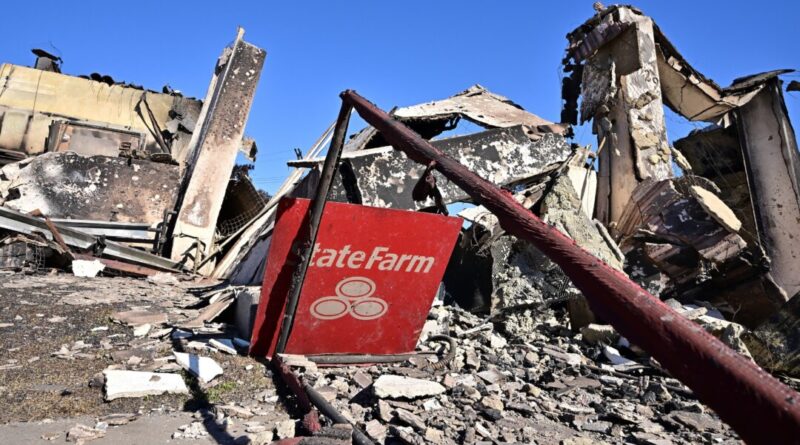Double-Digit Hike in Homeowners Insurance Rates for 2nd Consecutive Year
Premiums in Nebraska, Iowa, Minnesota, Montana, Utah, and Washington jumped by more than 20 percent last year.
Insurance premiums of American homeowners rose last year, with rates increasing by more than 20 percent in six states, according to a recent report from S&P Global.
In total, 33 states saw premiums climb by double digits last year, with the largest spike seen in Nebraska at 22.7 percent. Premiums in Iowa, Minnesota, Montana, Utah, and Washington jumped by more than 20 percent.
Florida had the lowest premium increase at just 1 percent, followed by Texas at 3.4 percent and Nevada at 4.3 percent.
Among the largest 10 private homeowners insurers in the country, American Family Insurance Group implemented the biggest premium rate hike last year at 16.5 percent. This was followed by Liberty Mutual Holding Co. Inc. and the Progressive Corp.
“Much like Americans are experiencing higher prices for virtually all material goods, a key driver for homeowners insurance has been around the likes of construction materials, which are an important element used when insurers help customers rebuild after catastrophe strikes,” said the institute’s CEO, Sean Kevelighan.
He said the institute’s analysis revealed that “cumulative replacement costs related to homeowners insurance soared 55 percent between 2020 and 2022.”
Even prior to the pandemic, insurers were struggling to remain profitable as rising costs made this challenging, the organization noted. In 2023, insurers paid out almost $1.11 in claims and expenses for every dollar they took in.
Elevated Insurance Costs
During an interview with The Epoch Times last year, Divya Sangameshwar, insurance spokesperson for LendingTree, said that insurance companies can refuse to renew coverage for a property for various reasons including rising home prices, higher risks, and the number of claims filed by homeowners.
“If you live near the coast, there’s been unprecedented rate hikes due to storms and flooding,” she said. “The costs can become so much of a shock that homeowners often consider moving because the insurance premiums are now making their home unaffordable.”
JoAnne Murray, president of Allan Block Insurance in Tarrytown, New York, said that “in the 40 years that I’ve been doing this, I have never seen it this bad.”
One property worth $2 million in Long Island was quoted an insurance of $48,000 per year, up from $6,000, she said. Another property in Florida valued at $7 million had a premium quoted at $340,000.
“One of the biggest factors affecting the escalating costs is wind damage. Hurricanes and tornadoes can destroy a home in just minutes. Trees falling on homes can also cause significant damage.”
The insurance situation is especially serious in California.
Jordan Levine, senior vice president of the association, said nearly a third of realtors were aware their buyers were finding it difficult to secure insurance for properties.
“Folks are already struggling because of housing supply issues and the growth of our economy and demand, so housing affordability has already deteriorated from where it was a handful of years ago,” he said.
“Now, annual carrying costs are going up substantially because of the insurance premiums … and these could be the difference maker for some folks not being able to make that leap into homeownership.”
Mary Prenon and Travis Gillmore contributed to the report.





